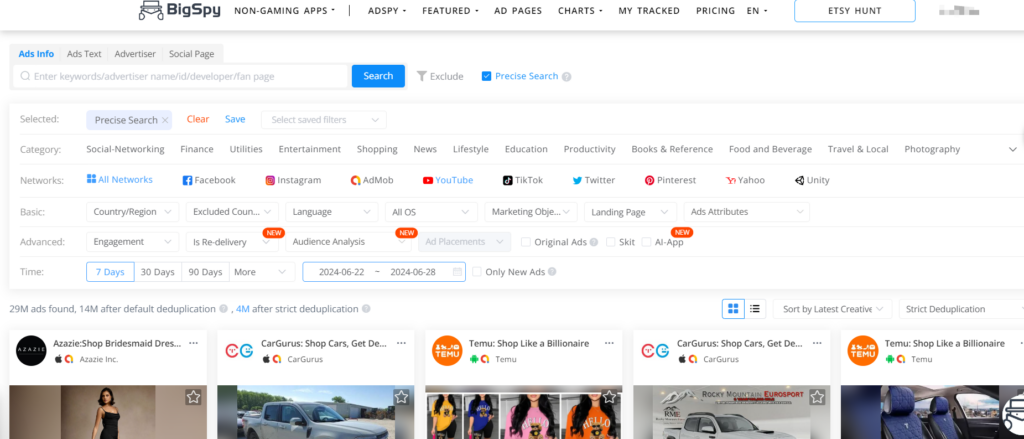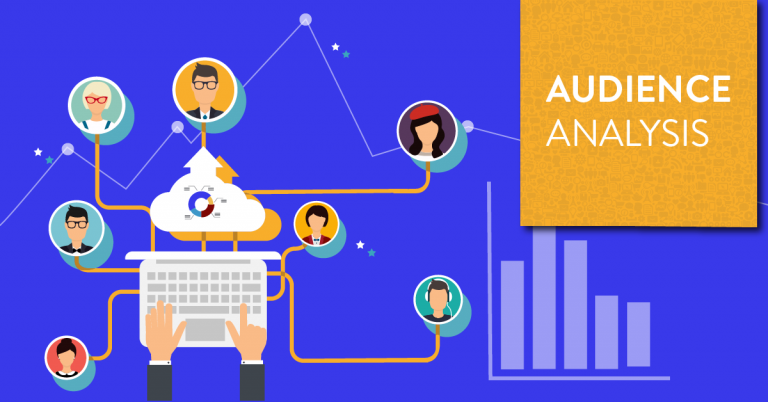Essential AI Statistics You Need to Know in 2024
Artificial intelligence (AI) continues to astonish businesses with its capabilities and potential. From reducing costs to creating new growth opportunities, AI is unlocking doors for companies and consumers worldwide.
Explore the top AI statistics that highlight why AI is one of the fastest-growing markets of 2024 and how businesses are leveraging this advanced technology to outpace competitors and boost their profits.

AI Usage Statistics
How many people use AI, and in what ways are individuals and businesses utilizing this evolving technology? Let’s delve into the statistics to uncover the widespread impact of AI in 2024.
AI Can Help Businesses Scale
Businesses are increasingly dependent on AI, and as a result, consumer preferences and needs are evolving. In fact, 81% of customers expect faster service with technological advancements, while 73% seek enhanced personalization.
Nearly Half the U.S. Population Use Voice Assistants
In 2022, approximately 142 million people in the United States interacted with voice assistants, accounting for nearly half the population. By 2026, this number is projected to increase to 157.1 million users.
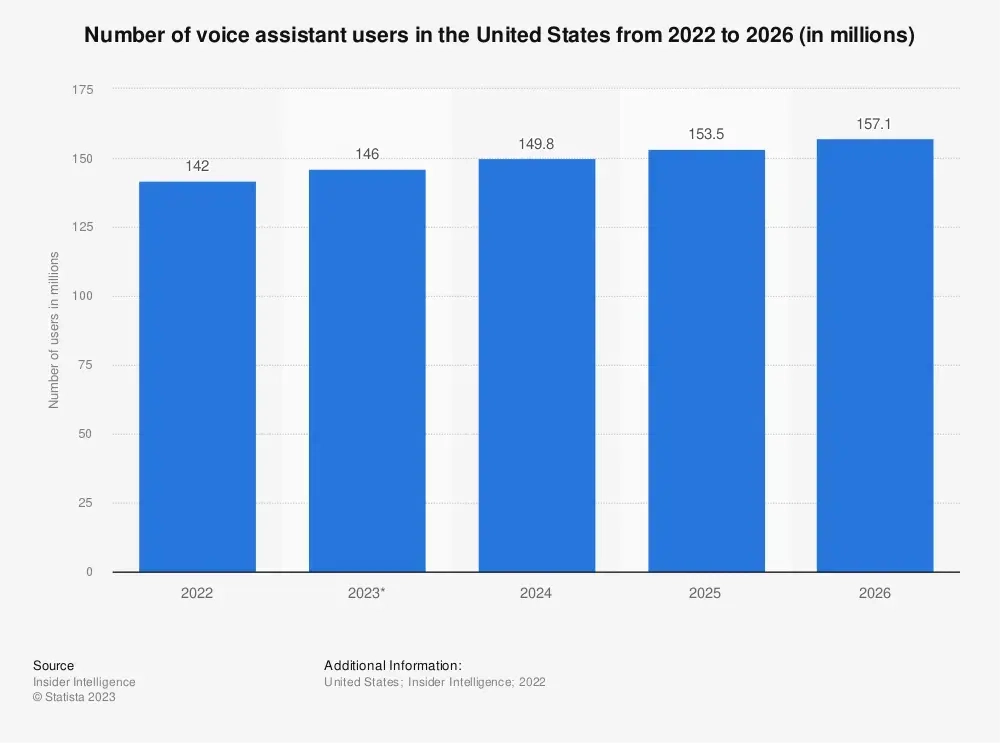
Companies Use AI to Address Skill Shortages and Environmental Challenges
A quarter of businesses use AI to fill talent gaps. About 20% use AI because of pressures like customer expectations or competition.
Services Holds 39.64% of the AI Market Share
Services hold the largest percentage of the AI market share, followed by software at 36.98% and hardware at 23.38%. The dominance of services in the AI market is due to the ease and flexibility of using artificial intelligence (AI) as a service for various AI applications. AI projects are complex, requiring a combination of skills in areas like computer vision, language processing, and machine learning. Many turn to AI services because they integrate diverse expertise and resources, effectively managing these challenging projects.
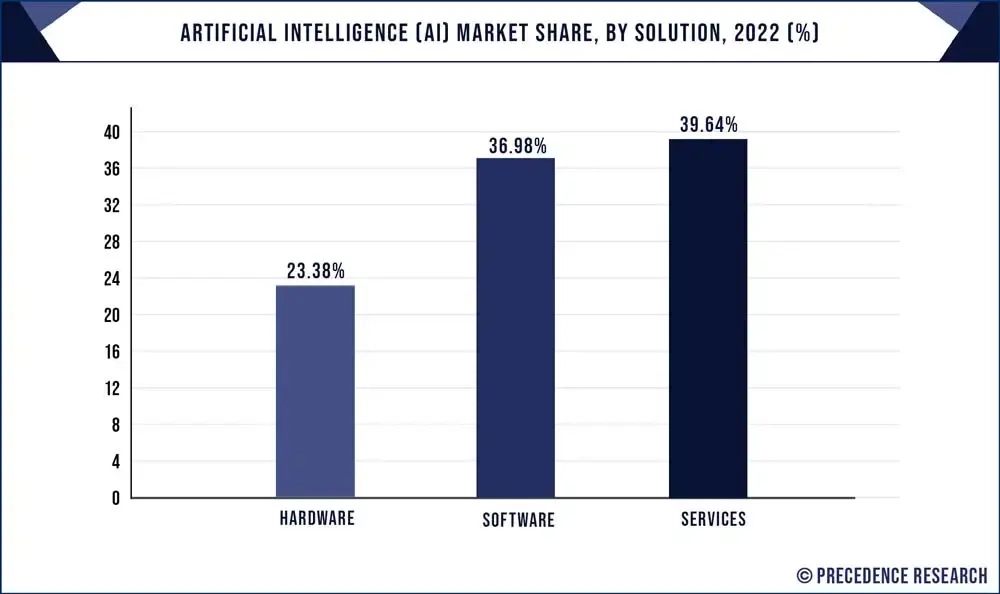
Artificial Intelligence Growth Statistics
AI steadily grows as more businesses realize its benefits and the technology becomes more accessible. Below is more on the projected growth of AI and the top contributing factors.
The Global AI Market is Expected to Reach $538.13 Billion in 2023
In 2022, the global market for artificial intelligence (AI) was valued at approximately $454.12 billion. By 2032, this figure is projected to skyrocket to $2,575.16 billion, growing at an annual rate of 19% from 2023 to 2032. In North America alone, the AI market was worth $167.30 billion in 2022.
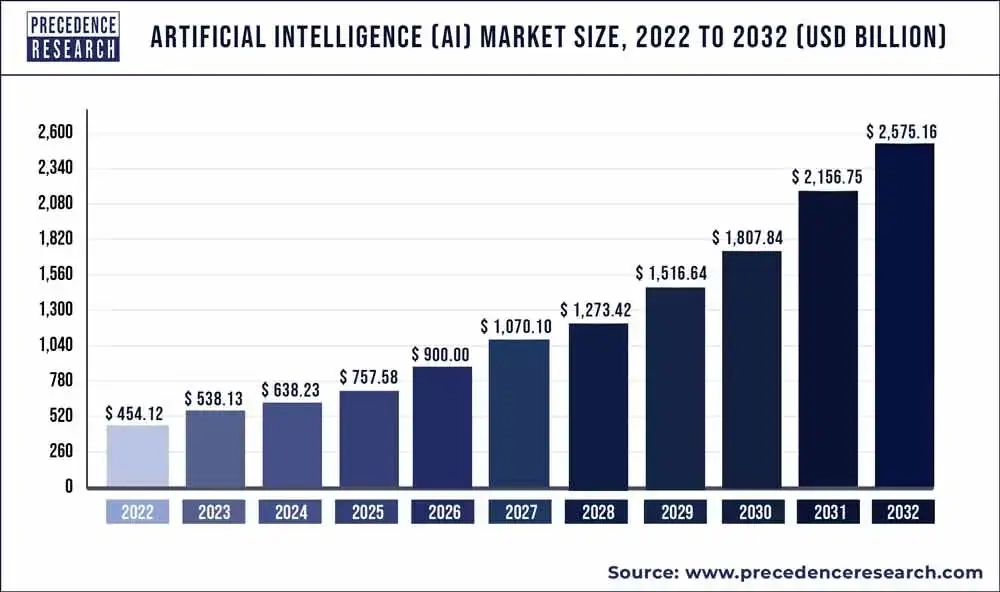
More Than 80% of Companies Have Adopted AI in Some Way
The AI wave is sweeping through businesses! More than 80% of companies have embraced artificial intelligence (AI) in some form, according to various studies. For 83% of these companies, AI is the top priority in their business strategy. Looking ahead to 2025, 80% of businesses plan to adopt intelligent automation—a powerful combination of AI and automation. Retail executives are also catching on, with 80% planning to implement AI within the next three years.
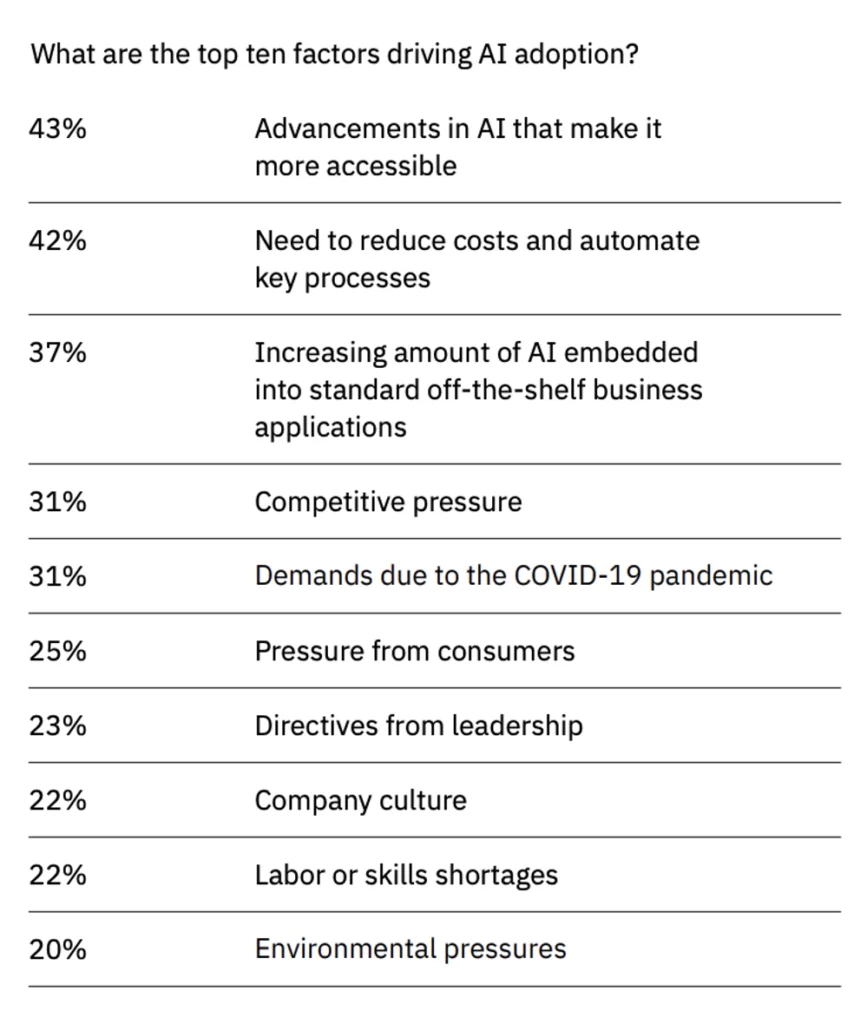
AI in the Retail Industry Statistics
The adoption of AI has arrived at the perfect moment as more consumers shift to online shopping. Consequently, AI has enhanced the retail industry by bridging ecommerce and in-store experiences. Additionally, it aids retailers with real-time pricing and customer research.
80% of Retail Companies Expect to Adopt AI by 2025
The retail and consumer products sector is set to significantly boost AI adoption in the coming years. A key application of AI in retail is for customer intelligence. Currently, 40% of retailers use AI, and this figure is expected to rise to 80% by 2025.
AI Will Contribute $15.7 Trillion to the Global Economy by 2035
Artificial Intelligence (AI) is advancing rapidly in an era of accelerated innovation and adoption, profoundly influencing retail sales. According to PwC, AI's contribution to the global economy could surge to an astounding $15.7 trillion by the year 2035.
AI in the Workplace
Companies using AI have seen higher employee retention rates and job satisfaction. Dive into the statistics that show the many benefits of AI in the workplace.
81% of Employees Perform Better with AI
Around 68% of employees are eager for their employers to increase their use of AI technology. Currently, 56% of employees utilize AI on a daily basis. According to 81% of workers, the primary benefit is enhanced work performance.
Moreover, approximately 89% of employees believe AI could reduce at least half of their workload. Other advantages cited include improved decision-making and creativity.
Understanding Data Is the Top Workplace Task Employees Would Use AI for
About 43% of employees would use AI to understand data and trends to improve decision-making. Another 41% use it to transfer and share data.
AI Improves Employee Work-Life Balance
As reported by 51% of employees, AI contributes to achieving a healthier work-life balance. By enabling faster task completion, workers can manage daily responsibilities more efficiently, thereby gaining additional time to spend with friends and family.
Finally
AI has become integral across industries, driving efficiency and innovation. In retail, AI enhances customer experiences through personalized interactions and real-time insights. Businesses are increasingly adopting AI to streamline operations and improve decision-making. Employees benefit from AI with improved work-life balance and reduced workloads. Looking ahead, AI's rapid evolution promises continued growth and transformation, reshaping how industries operate and interact with consumers globally.

